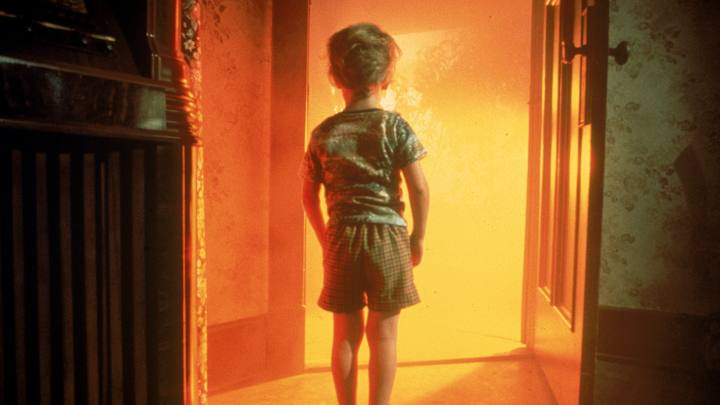In Babygirl, Nicole Kidman plays Romy, a powerful CEO involved in a sexually suggestive relationship with her intern, in one of her boldest roles to date. The film, which was directed by Halina Reijn, explores sexual desire, power relations, and the intricacies of contemporary womanhood. Since its Venice Film Festival premiere, Babygirl has generated debates due to its unapologetic depiction of a woman’s path through both emotional and professional adversity.
Plot Overview: The Double Life of Romy
Romy Mathis, the strong boss of a robotics company in New York, seems to have it all: two daughters, a devoted husband (Jacob, played by Antonio Banderas), and a prosperous job. But underneath this exterior is a lady struggling with unmet expectations and a longing for autonomy in her private life. Her meeting with Samuel (Harris Dickinson), a self-assured and mysterious intern, starts a covert relationship that subverts social expectations as well as her own ideas of vulnerability and power.
In their BDSM-based partnership, Romy experiments with obedience to Samuel’s authority. She is forced by this encounter to face her repressed urges and the contradiction between her private and public selves. Romy’s personal and professional lives start to intersect as their liaison gets more intense, setting off a chain of events that pushes her limits and makes her rethink who she is. BBC News
Nicole Kidman’s Performance: An Exhibit of Intricacy

Romy is portrayed by Kidman in a bold and complex way. She portrays a figure who is both dominant and torn, negotiating the perilous seas of social expectations and forbidden yearning. Her performance has been praised by critics as one of her most captivating in recent years. According to Nicholas Barber of the BBC, Kidman’s “lack of vanity in these scenes makes this her bravest and best performance in quite some time”
Romy’s path is both realistic and thought-provoking because of her ability to portray strength, vulnerability, and internal turmoil. Kidman’s performance offers a novel viewpoint on the intricacies of contemporary womanhood while challenging conventional representations of feminine desire and agency.
Themes: Female Agency, Consent, and Power
By putting a woman in a position of both professional leadership and personal submission, Babygirl subverts conventional narratives. The complexities of consent, the attraction of submission and domination, and the social constraints placed on women in positions of authority are all examined in the movie.
Despite being younger and less seasoned, Samuel’s character takes charge of their relationship, sparking conversations about gender norms and power dynamics in close partnerships. Peter Bradshaw of The Guardian described the movie as “a sex-positive reboot of the 90s high-concept erotic thriller.”
The story explores the psychological facets of BDSM, emphasising the value of communication and permission. It also looks at the double standards society has for female sexuality, especially when powerful women experiment with subservient roles. By presenting Romy’s path objectively, the movie invites audiences to consider how they interpret empowerment, autonomy, and desire.
Direction and Cinematography: A Raw and Intimate Lens
The glitz and glamour typically associated with sensual thrillers are stripped away by director Halina Reijn’s raw, indie-style approach. The film’s artistic decisions—close-ups, muted colour schemes, and unapologetic depictions of vulnerability—draw viewers into Romy’s inner conflict. Romy is made to seem both strong and incredibly human by scenes showing her receiving Botox treatments and having self-doubt.
By prioritising authenticity over stylisation, Reijn’s directing captivates audiences and immerses them in Romy’s universe. From her moments of weakness to her moments of empowerment, the cinematography depicts the subtleties of her emotional journey. This strategy promotes a closer bond between the viewer and the characters by enabling the movie to explore difficult subjects without resorting to sensationalism.
Critical Reception: A Polarizing Narrative

Both audiences and critics have had varying reactions to Babygirl. Some criticize its execution and conceptual depth, while others applaud Kidman’s performance and its audacious storyline. The film was praised by the San Francisco Chronicle for being “deeply engaging” and for examining the difficulties faced by contemporary women. Wendy Ide, however, criticized the movie for feeling “more synthetic and mannered than spontaneous and transgressive” in her assessment of The Guardian.
Notwithstanding the divergent viewpoints, the movie has attracted a lot of interest and provoked discussions on female agency, power relationships, and how sexuality is portrayed in movies. In particular, Kidman’s portrayal has received a lot of praise, securing her nominations for important honours and solidifying her reputation as an actor who is fearless and adaptable.
Comparisons and Cultural Context
Despite being compared to films like Eyes Wide Shut and Fifty Shades of Grey, Babygirl stands out for emphasizing the path of a female protagonist as she explores her desires and self-discovery. The movie is in line with a developing trend in film that focusses on strong female protagonists overcoming social and personal obstacles. “The feel-good movie of the year,” according to Allure magazine, highlights its celebration of female empowerment and personal development.
Babygirl adds to the continuing conversation about gender roles, power dynamics, and the value of genuine representation in media by questioning conventional tropes and providing a complex depiction of female sexuality. It is regarded as an important piece of modern film because of its audacious strategy and provocative subjects.
Conclusion
Nicole Kidman’s courageous performance in Babygirl brings to life this daring examination of identity, desire, and female emancipation. The movie explores difficult subjects including vulnerability, sexual agency, and the conflict between one’s own wishes and those of society.
Kidman’s performance of Romy provides a complex and genuine depiction of contemporary women, resulting in a compelling and thought-provoking movie. Babygirl, directed by Halina Reijn, has a profound effect on the discussion around female-led storylines in film by questioning traditional narratives and encouraging audiences to consider power, permission, and agency.
Stay updated with the latest in entertainment, celebrity performances, and bold cinematic stories. Bookmark our website and never miss an in-depth review or trending update. Join our growing community of film lovers and culture enthusiasts—because every story deserves to be seen, felt, and discussed.













